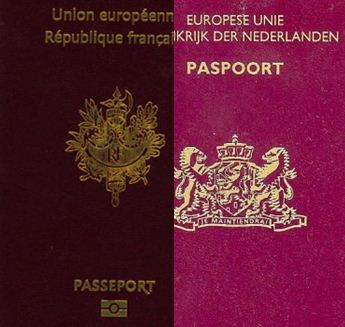Multiculturalism, Identities, Immigration in Western Europe and the United State : What Can We Compare ?

Practical information
Project by Christophe Bertossi and Nancy Foner, in collaboration with the Collegium-Institute for Advanced Studies in Lyon, the French Network of Institutes of Advanced Studies (RFIEA), the French National Agency for Research (ANR), the Social Science Research Council (SSRC).
Multiculturalism, Identities, Immigration in Western Europe and the United States: What Can We Compare? In both Western Europe and the United States, contemporary immigration has dramatically affected the social construction of ethnic and racial diversity, reshaping political, public, and academic discourses about diversity, citizenship, and common belonging. Surprisingly, the field of Europe/US comparative research on these issues remains loosely organized. Little attention has been paid to systematically comparing these processes of change in both contexts. Moreover, conceptual and methodological issues at stake in such a transatlantic comparison have not been addressed in depth. If transatlantic comparisons will help to overcome the relative insularity of the academic discussions in the US and Europe, a number of methodological and conceptual challenges are also important to analyze and study. Cross-national comparisons involving the United States and Western European countries are complicated by the fact that race and ethnicity are embedded in different historical, ideological, political, and social contexts. Among the questions that arise: Which groups should be compared in Europe and the United States? What are the implications of comparing, for example, Muslims in Europe and African Americans in the United States? Should transatlantic comparisons focus on immigrant groups instead? Other aspects of methods used in comparisons need to be clarified and analyzed ranging from multi-sited ethnographic studies to the use of census material on other national datasets.
Richard Alba, distinguished professor, CUNY
Christophe Bertossi, senior research fellow, Ifri
Erik Bleich, associate professor, Middlebury College
Eric Fassin, professor, Ecole Normale Supérieure
Nancy Foner, distinguished professor, CUNY
Gary Freeman, professor, University of Texas-Austin
Léo Lucassen, professor, University of Leiden
Patrick Simon, director of research at INED
Other events

From Ambition to Action: Exploring Technological Partnerships with India
The 16th EU-India Summit, held on January 27th in New Delhi with European leaders António Costa, Ursula von der Leyen, and Prime Minister Narendra Modi, marks a significant milestone in deepening EU-India relations. At the same time, official bilateral visits from EU member states are on the rise, including that of the French President, who visited India in February to participate in the Artificial Intelligence Summit. As India asserts its technological ambitions and seeks to reduce its dependence on China, Europe is stepping up its efforts to diversify its strategic partnerships.

The Enlargement of the European Union: A Strategic Choice? France, the Western Balkans and the EU in an Uncertain Geopolitical Context
Russia’s war against Ukraine has brought the enlargement of the European Union back to the centre of European strategic debates. In this context, the Western Balkans have regained heightened visibility in discussions on the continent’s security, at a time when the international environment is marked by a growing number of destabilising factors.






